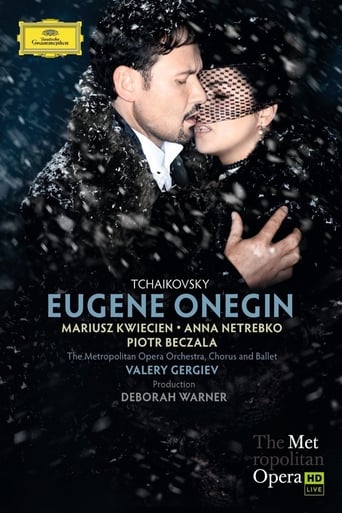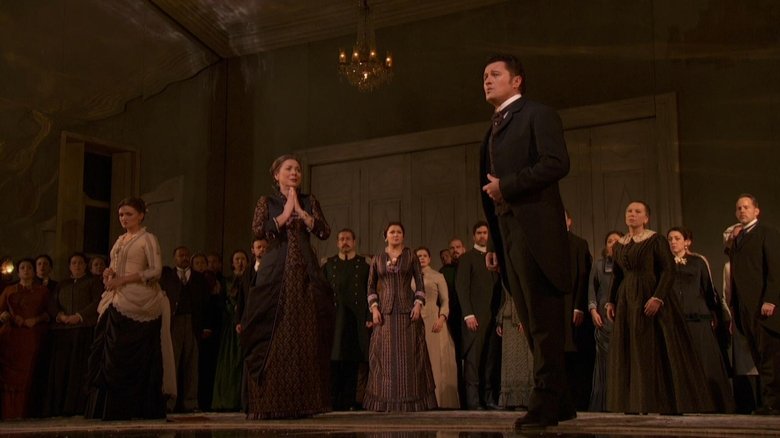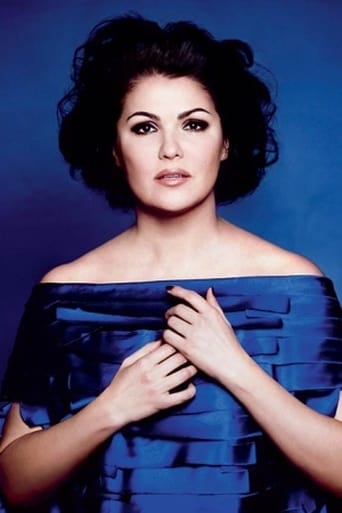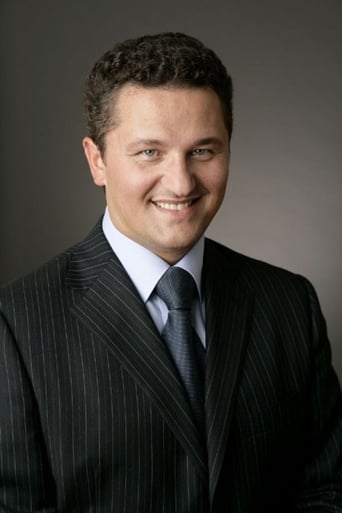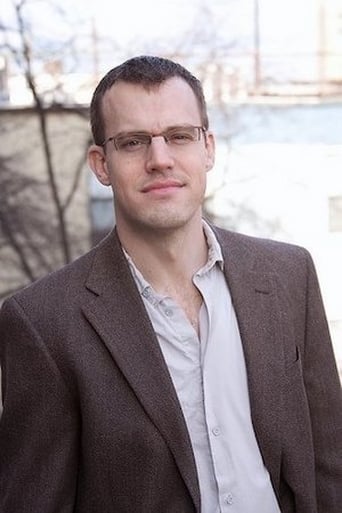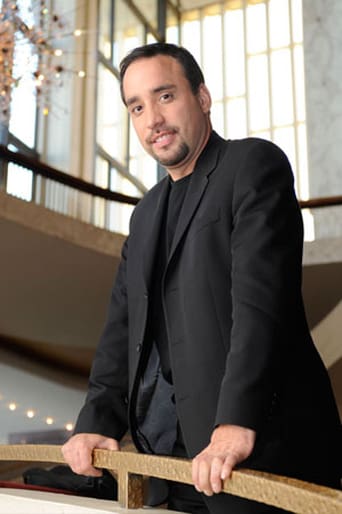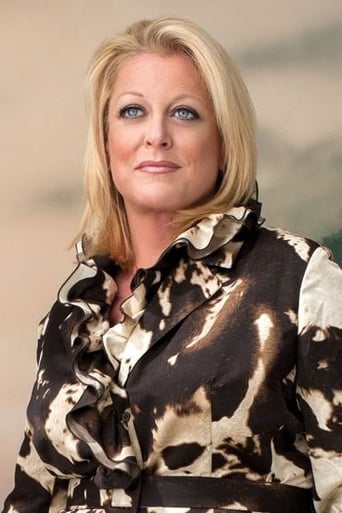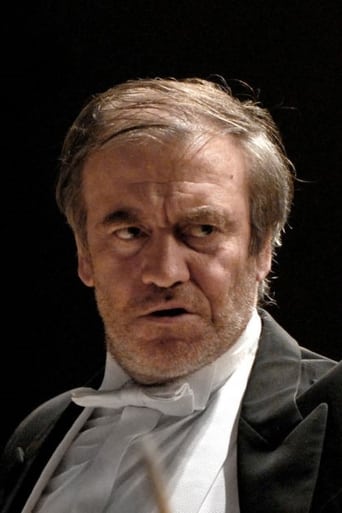The imperious Onegin rejects naive Tatiana's proposal of love and also incites a duel with his best friend turned rival Lenski (Piotr Beczala). This sets the scene for a dramatic story of love, loyalty and betrayal. Acclaimed theatre director Deborah Warner presents this lavish new interpretation of the timeless tale. Set in the 19th century and moving episodically from farmhouse to ballroom, the production culminates in an unforgettable finale set during a snowstorm.


Similar titles




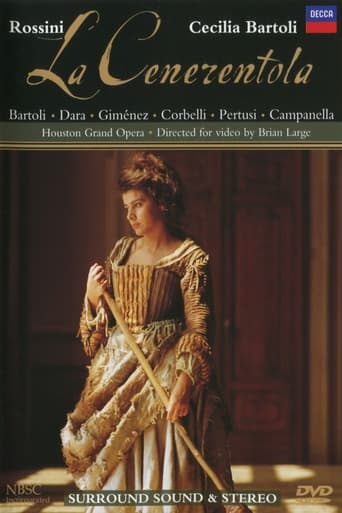
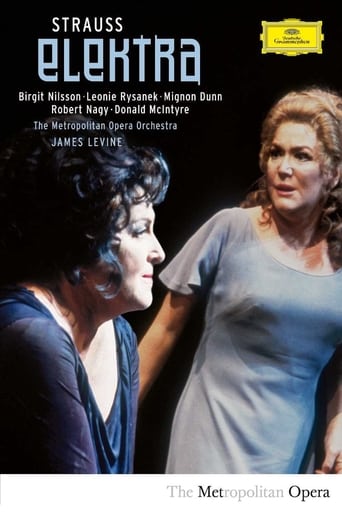
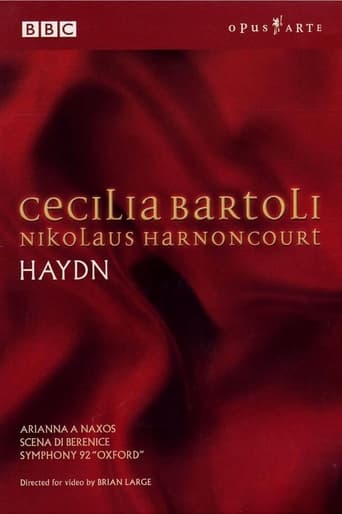
Reviews
I had very high hopes for this production, seeing as Eugene Onegin is such a huge personal favourite. And those hopes seeing it via live simulcast were mostly met, throwing the whole politics, gay rights and Vladimir Putin that were troubling the production behind the scenes(as well as Fiona Shaw standing in for director Deborah Warner at very last minute due to illness) out of the equation. The production is not faultless so to say.The scene changes did take far too long, the worst case was between the letter scene and the last scene of Act 1, understandably with such complicated and detailed sets time was needed but when each one takes at least 3 or 4 minutes it really drags the pace. The production is on the most part very handsome, though with two reservations, the setting of Tatiana's bedroom, which was far too drab and almost like a sparsely furnished greenhouse, and Tatiana's dress in the Act 2 party scene, too frumpy and the colour didn't fit or stand out among the rustic settings, Netrebko literally disappears among everyone else at times in this act. One performance also didn't work, Alexei Tanovitski as Gremin, he's more stiff than he is sympathetic and he has a vibrato so wide and a tone so woolly and dry that it sounds like he's singing from underwater.Visually though on the most part it is a pleasing production to look at. The rustic colours in the party scene and most of Act 1 fit within the tone of the scenes, the costumes are tailored beautifully and sumptuous(all of Onegin's costumes and Tatiana's Act 3 ballroom dress) and the ballroom setting in Act 3 was very opulent. Of all the settings, the most effective was the cold dark night setting of the last scene of Act 2, the final scene was also beautifully done. The staging is most compelling and tasteful, only Gremin's aria could have been done better, more wistful and less in the 3rd person. The Waltz scene was just thrilling, everybody seemed to be having so much fun and the dancing looked very elegant and natural, while the first act chorus was just as fun and animated(when they were throwing that dancer up in the air and on the floor I was on the edge of my seat hoping I hope she survives that). The confrontation between Lensky and Onegin in Act 2 is incredibly intense and you cannot fail to watch the final scene without tears falling down your cheeks.Musically, it was outstanding. Valery Gergiev's tempos have been criticised for being too leaden in the first act, for me his conducting was not a problem, maybe he could have moved on the lovely first ensemble and the Monsieur Triquet scene more. However, Gergiev(looking very distinguished) clearly has an understanding of the Tchaikovsky style and conducts with great authority and musicianship as well as an elegant sense of line. The first act chorus and waltz are immensely fun to listen to, the act 2 confrontation was nail-biting and the Polanaise was the very meaning of grand, while also allowing the Letter scene and Lensky and Gremin's arias to speak for themselves.The orchestra play with intensity, passion, style and pathos, such dynamic and thrilling playing throughout and the resonant sound quality of the simulcast helps them. The brass blasts out when needed, the strings shimmer and the cellos, basses and woodwind are very foreboding. The chorus sing beautifully and tellingly too, especially the warm sopranos and sonorous basses. Occasionally perhaps the balance wasn't quite right, in the Waltz the sound tended to favour the orchestra over the chorus.The principal performances are very little to criticise. Elena Zaremba is a little under-pitch and unsteady at times but her acting is characterful and telling, while Larissa Diadkova is a sympathetic nurse and her voice is appealingly penetrating. John Graham Hall is very funny as Triquet, while in support the best was the charming and at times flirtatious Olga of Oksana Volkova. Only Gremin disappointed performances-wise. Of the three principals, Piotr Beczala's Lensky was a revelation. He has a strong lyrical tone that is capable of the powerful hefty moments in his jealous angry moments, and the performance is intensely moving. He's at his best in his aria Kuda, Kuda, so heartfelt with liquid-like legato and mostly ringing soft-singing.Anna Netrebko makes her role debut as Tatiana, and sings it in a way that suggests that she's been doing it for longer. It's roles like these that she should be taking on now, her acting shows Tatiana's change from love-struck naivety to regal maturity with affecting conviction and her singing is incredibly musical and dark-toned. Of her three opening season performances(the others being Anna Bolena and Adina) this is her best performance of the three by a landslide, the lengthy and tour-De-force Letter scene was outstanding. Mariusz Kwiecien's voice may sound a little small at the Met, but his Onegin is beautifully sung with very handsome and virile tone and good phrasing, the mix of clipped in the first act to longer in the last shows a good indication of Onegin's change from boorishly dismissive to anguished and regretful. His acting is also very good, the moment where he realises that Tatiana as Gremin's wife was the same woman he scorned years before was remarkably vivid as was the final scene.In conclusion, not a perfect production and not quite as good as the Robert Carsen performance(in the first season of the series), but handsome, intense, moving, powerful and beautifully sung and played. The production is very well shot and resonant sound-quality-wise. Deborah Voigt is a warm, inviting host, and of the four interviews(excluding Gelb's), Kwiecien's was the most entertaining and Gergiev's the most interesting. Now the rest of the season is something to look forward to greatly. 8/10 Bethany Cox
